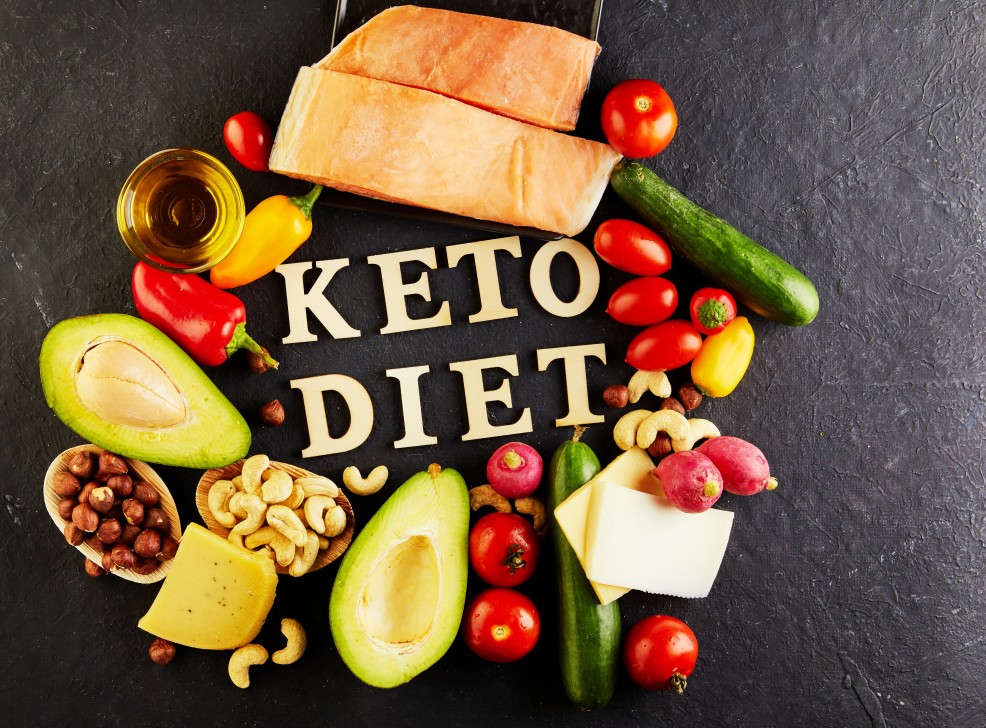It is now easier to keep track of your daily keto macros since there are a variety of Keto macro calculators available on the internet.
For a more precise result, you can search for a Ketogenic calculator that takes into account your age, BMI, weight, gender, daily activities, and calorie intake.
The macronutrient proportions of a Ketogenic diet typically consist of 5-10% carbohydrates, 15-25% protein, and 65-75% fat.

keto diet
Let us commence looking at the approach to working out your Keto macros.
Carbohydrates
Carbs can be referred to as a type of nutrient that the body uses for energy. It is the most essential source of energy for the body and is found in a variety of foods such as grains, fruits, and vegetables.
For those on a ketogenic diet, which is a low-carb one, aiming for 5-10% carbohydrates daily translates to approximately 20-50 grams of carbohydrates. To keep your carb intake low, consider consuming these carbs in separate meals.
In order to find your total number of carbs, you have to begin by calculating your Total Daily Energy Expenditure (TDEE). It is important to note that you should be tracking your activities in order to come up with your TDEE.
After that, multiply your TDEE by the total number of calories that you have. In the end, it should look like this:
In order to determine the number of carbohydrates one should consume each day, one should multiply the Total Daily Energy Expenditure (TDEE) by the total percentage of calories and then divide the result by 4.
This calculation can also be attempted;
To determine the total number of carbs desired, multiply the total calorie count by the desired percentage of carbs and divide the result by four.
For example, if you take in a total of 2,000 calories per day, you could choose to limit your carbohydrate intake to a mere 5%.
The result of multiplying 2000 by 0.05 is 100, and when this number is divided by 4, the answer is 25.
The total amount of carbohydrates that you should consume in a day is 25 grams.
It is possible to find a web-based Keto calculator to assist with the determination of your daily carbohydrate intake.
Proteins
Protein is a vital nutrient that can be found in many different food sources. It consists of amino acids, which are essential for a wide variety of bodily functions.
The body needs these acids to build and maintain tissue, produce hormones and enzymes, and perform other important tasks. Eating a balanced diet that includes protein is important to maintain health and well-being.
For those who have just started the Keto diet and have a moderate level of physical activity, it is recommended to consume 0.8-1.0 grams of protein per pound of lean body mass. On the other hand, bodybuilders might require a higher intake of 1.0-1.2 grams per pound of lean body mass.
A person should be aware of what they want to accomplish with their body and use that to figure out the amount of protein that should be consumed.
If you desire to sustain your corporeal mass at 110 pounds, then you will likely require 70-88 grams of protein daily to accomplish that goal.
To determine the number of calories from the specified amount of protein, one should multiply 70 to 88 grams of protein by 4 to obtain the total caloric value from the protein.
Fats
It can be said that an individual is overweight or obese when their body mass index (BMI) is higher than what is considered to be healthy.
For a successful Ketogenic diet, you will need to consume 70-80% of calories. To determine the amount of fat needed, take the sum of your protein and carb intake and then deduct 100. The resulting figure will be the total fat intake required.
The amount of fat you calculate may not always be the same due to changes in your body mass. Nevertheless, you need to regularly change your macro-nutrient intake.
You may be surprised by the amount of fat you need to consume in total. Yet, you should not be concerned as previously mentioned, 65-75% of fat is required to maintain Ketosis.
Familiarize yourself with the essential Keto Macros.
Links
Here are some of our resources if you want to dig into the keto duet in more detail
A free Keto shopping list printable
A free Keto Diet Journal printable
10 keto related breakfast recipes
